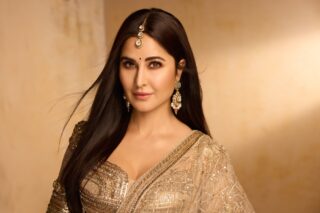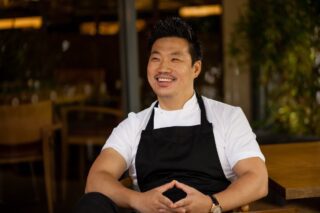This website uses cookies so that we can provide you with the best user experience possible. Cookie information is stored in your browser and performs functions such as recognising you when you return to our website and helping our team to understand which sections of the website you find most interesting and useful.
Interview: Catie Munnings talks testing first hydrogen race car and being a woman in motorsport
By Shivani Dubey | 6 November 2024 | Motoring, Sport
Tempus meets British driver Catie Munnings to discuss her impressive career in motorsport and testing the FIA approved Extreme H hydrogen car
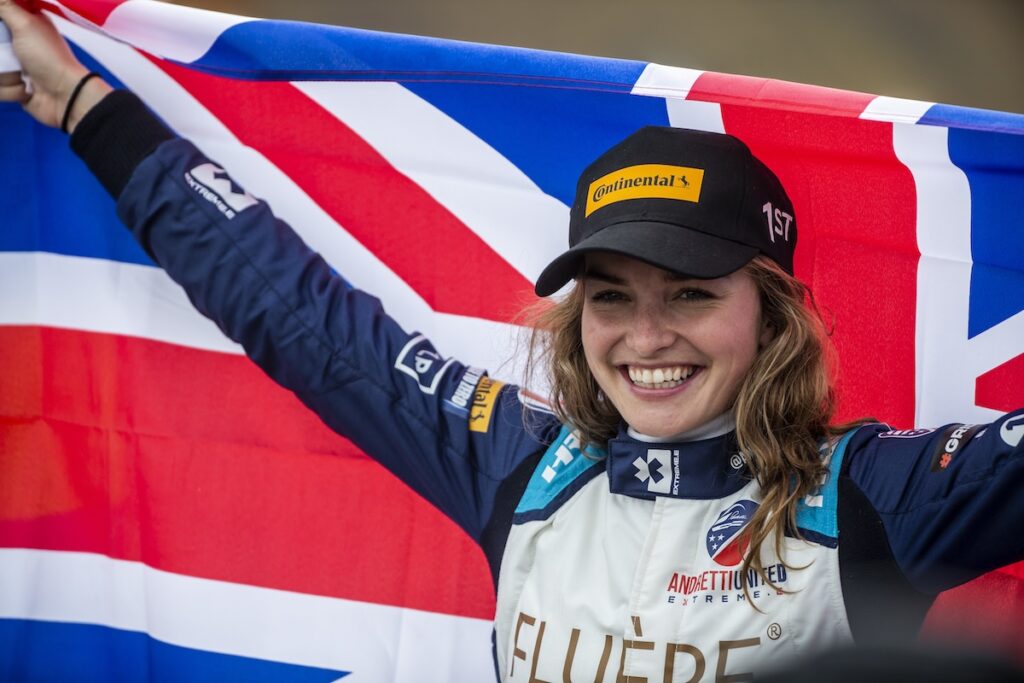 Catie Munnings is only 26 years old, but she has already carved out an unbeatable career in the world of motorsports. The former CBeebies presenter of Catie’s Amazing Machines has raced alongside ex-Formula 1 driver Jenson Button and beaten world rally champion Sébastien Loeb. She became the UK’s first ever female motorsports athlete to sign a sponsorship deal with Red Bull, won the FIA European Rally Championship Ladies Trophy at the age of 18, and is currently a rally driver for Andretti Altawkilat Extreme E.
Catie Munnings is only 26 years old, but she has already carved out an unbeatable career in the world of motorsports. The former CBeebies presenter of Catie’s Amazing Machines has raced alongside ex-Formula 1 driver Jenson Button and beaten world rally champion Sébastien Loeb. She became the UK’s first ever female motorsports athlete to sign a sponsorship deal with Red Bull, won the FIA European Rally Championship Ladies Trophy at the age of 18, and is currently a rally driver for Andretti Altawkilat Extreme E.
She is proving that women can compete and excel in the sport at the highest level, pushing modern tech to its limits by competing in the off-road electric motorsport series Extreme E, and all-electric powerboat championship E1. In October, Catie tested the world’s first FIA-approved hydrogen race car in France, taking yet another step towards sustainability in motorsports.
Off track, she is an advocate for women in motorsport, championing female representation in the space, promoting more diversity in teams to encouraging young girls to dream big. In a sport where women make up less than 10% of professional F1 and motorsport drivers, Catie Munnings is weaving a tale that could inspire generations.
We caught up with Catie to chat about her incredible career — which, at 26, has only just begun, testing out the hydrogen car, her pivot from presenting to racing and the challenges of being a woman in motorsport.
Related: F1 Academy winner Marta García talks racing inspirations and being a woman in motorsport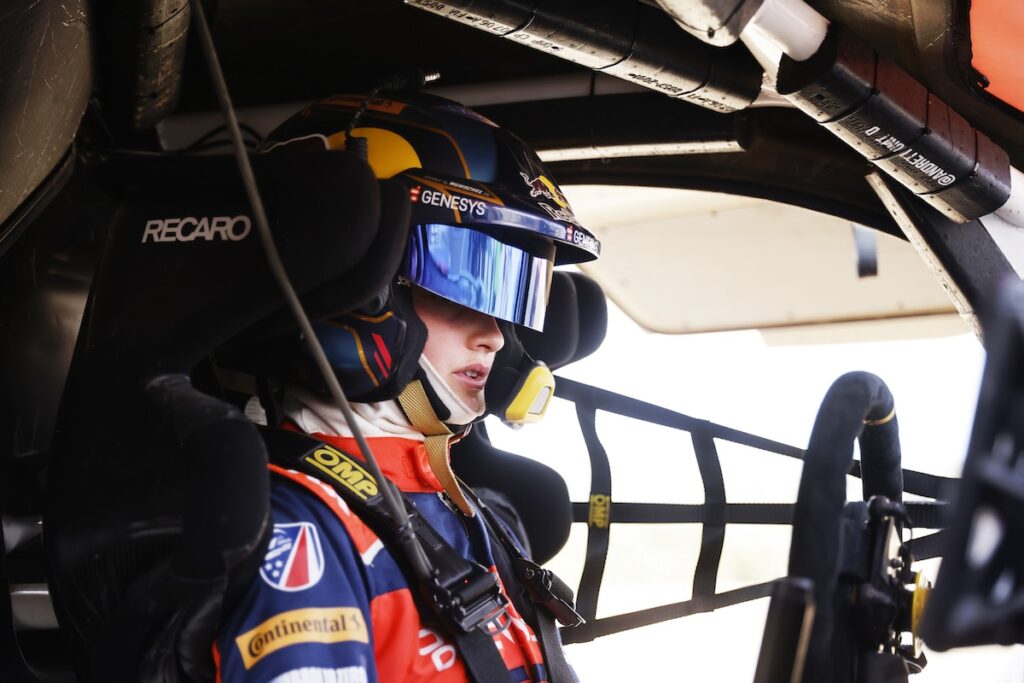 What made you get into motorsport?
What made you get into motorsport?
I first sat in a rally car as a passenger when my dad was instructing at a Rally school in the UK when I was about five years old. I absolutely love the adrenaline and the feeling of always being on the edge and on the limit of what’s possible, and I wanted to see if I could drive like that!
How did you find the transition from being a TV presenter to a full-fledged motorsport driver?
I have always been a driver first, I won the ladies European Rally championship and an interview on BBC breakfast led me to a few opportunities in TV and presenting a kids show which was really cool to show them that there’s a career for females in lots of different industries, but my focus has always been on Motorsport.
You have been advocating for women in motorsport for a very long time. What advice would you give to any female drivers looking to enter the F1/motorsport scene?
I think I never saw myself as any different from the male drivers, so I would encourage them to do the same and work very hard. What was it like to race against former F1 drivers like Jenson Button and beat world rally champion Sébastien Loeb?
What was it like to race against former F1 drivers like Jenson Button and beat world rally champion Sébastien Loeb?
It’s been incredible to race against some of the biggest names in Motorsport, especially drivers from different disciplines that I never thought I’d cross paths with. Extreme E has been fantastic for giving opportunities to drivers from lots of backgrounds to try to prove their talents on the world stage.
Are there any unique challenges about being a woman in motorsport?
There aren’t as many women in Motorsport in all of the classes, but I would say it’s difficult for every driver whether you’re a male or female to rise up through the ranks. It’s an incredibly expensive sport to find sponsorship for in the early days. In the cars that I’m racing, they’re not very physical so there’s not much of an advantage to men, which is one of the things I love about the sport; having the chance to compete on an equal ground.
You recently tested the world’s first FIA approved hydrogen car. What was that like?
It was pretty surreal to drive the Extreme H car! It’s a bit heavier and bigger than the Extreme E car, but it handles very well and the geometry changes have made it very stable. There’s obviously a lot of protection for the hydrogen that we’re carrying on board, so in many ways it’s one of the safest race cars out there!
Related: More than Equal – Creating the next generation of Formula 1 champions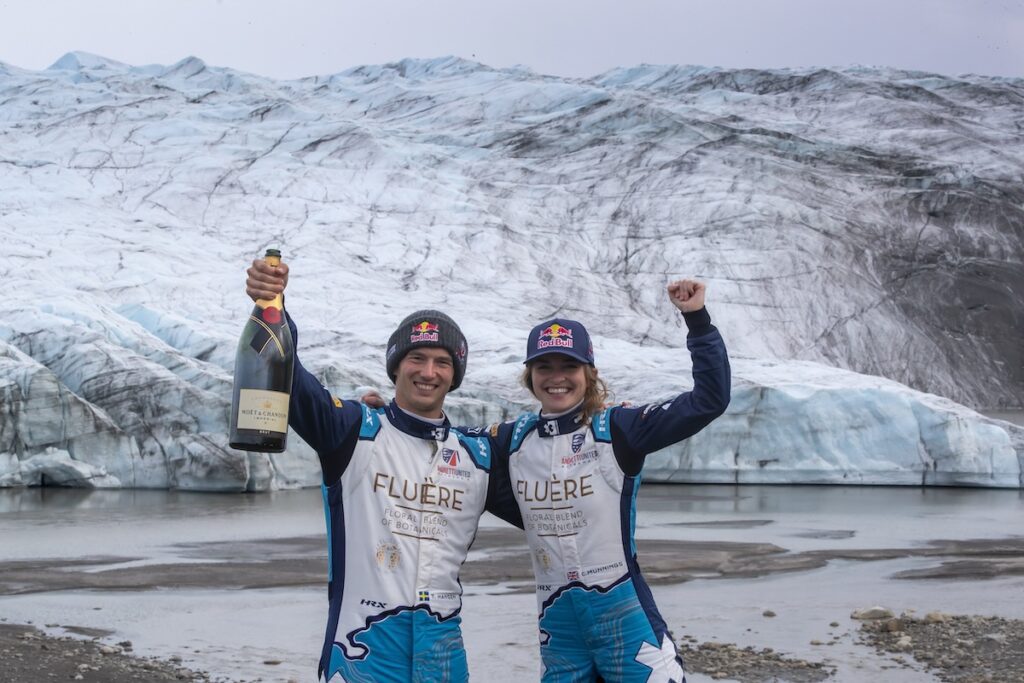 You have been championing for sustainability in motorsport for a while now — with the hydrogen car test being the latest way. Can you talk a little bit about that?
You have been championing for sustainability in motorsport for a while now — with the hydrogen car test being the latest way. Can you talk a little bit about that?
I love to be at the forefront of new technology and work with people who are pushing the limits of what’s possible. The companies around Extreme E have developed the car, the batteries and now the hydrogen fuel cells are very innovative, and it’s cool to show the potential for alternative transport in the future, and to keep an open mind.
What are your hopes for the sport — especially from the perspective of a woman?
I think championships like Extreme E having a regulation that each team should have a male and a female, and a combined overall result for the team really increases the level that the females are racing at because it provides more opportunities and more incentives for teams to train and support females developing in Motorsport. We’ve seen the level of talent rise a lot from the first season until now. There was a bit of a gap between the males and females at the start of Season 1, and now we regularly have race winners that are females over the men which is awesome to see.
Who are your racing heroes?
I’m inspired by Michelle Mouton and Susie Wolff, but also Sebastian Loeb for his composure and ability to adapt to changing racing conditions.


